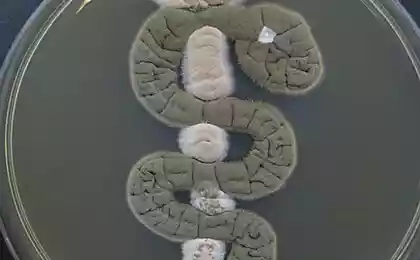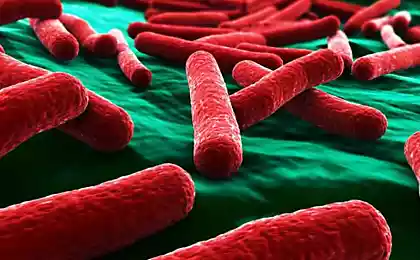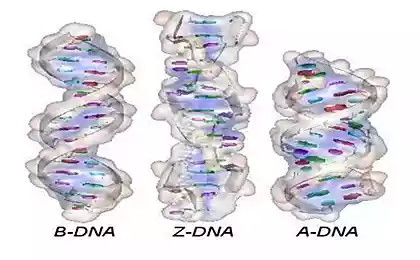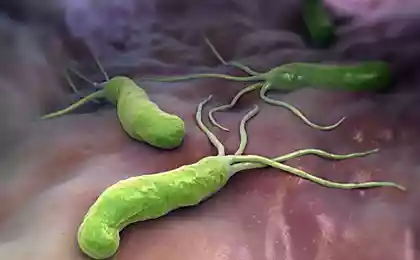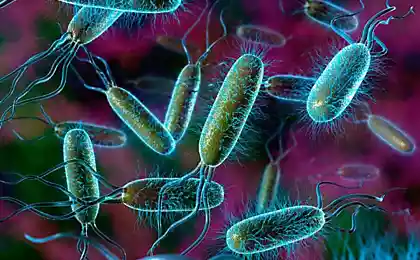482
Unusual Christmas greetings from the bacteriologist

Science is not always a waste of time in a countless number of silly experiments and writing endless articles. Science is fun! At least according to scientists from the University of Warwick, which in the Catholic Christmas eve decided to congratulate people on the holiday in a rather unusual way — using bacteria.
Dr. Munehiro, Usally made certain cultures of bacteria to form in the letters and finally received a congratulatory message "Merry Christmas" (merry Christmas). Although the letters turned out a little clumsy, the fact that the scientist was able to achieve this result, it can seem quite amusing.
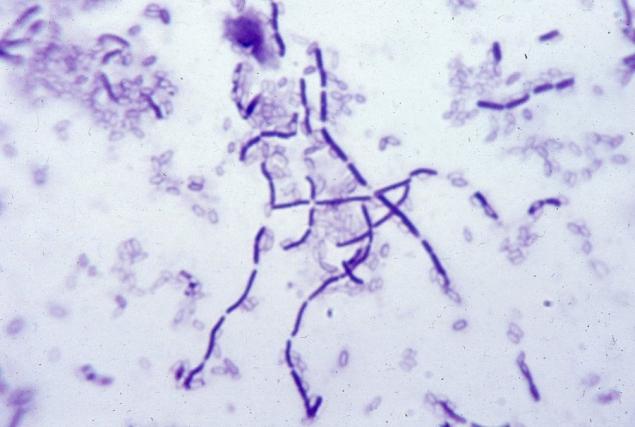
Like any responsible scientist, Dr. Munehiro decided to write an article about how he managed this experiment. His report says that to implement the idea was chosen bacterium, Bacillus subtilis (Bacillus subtilis). Came to work, the scientist was placed in separate cups with agar (in Petri dishes with a carefully controlled nutrient environment) the necessary bacteria, and then left them for 14 hours to grow. At this time, the temperature of the environment of the bacteria was maintained in the optimal range of 30 degrees Celsius.
Once the population of bacteria grew, the researchers used a metal stencil to the bacteria continued their growth within them. The growth of each letter size of 2 mm it took about 12 hours.
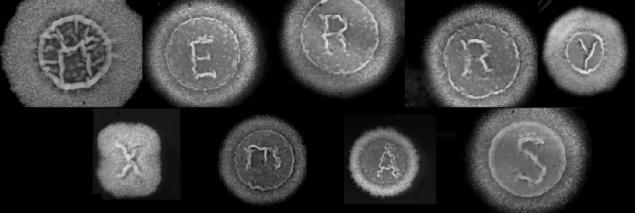
"Despite the opinion of many people that bacteria are single-celled organisms, in fact they show social behavior in nature almost always exist in the form of structured groups," explains Dr. Munehiro, Usally in their science article.
"With the formation of biofilm, which in this case are the letters, the bacteria will begin to collectively form the desired structure," adds the scientist.
When carrying out this extraordinary experiment the scientist and his colleagues did not put his health in danger. Says, Munehiro, a type of bacteria, which he used to create greeting messages actually very common and absolutely harmless. The fact that Bacillus subtilis is a nonpathogenic bacterium that can be found not only in nature but also in human gut.
Source: hi-news.ru
